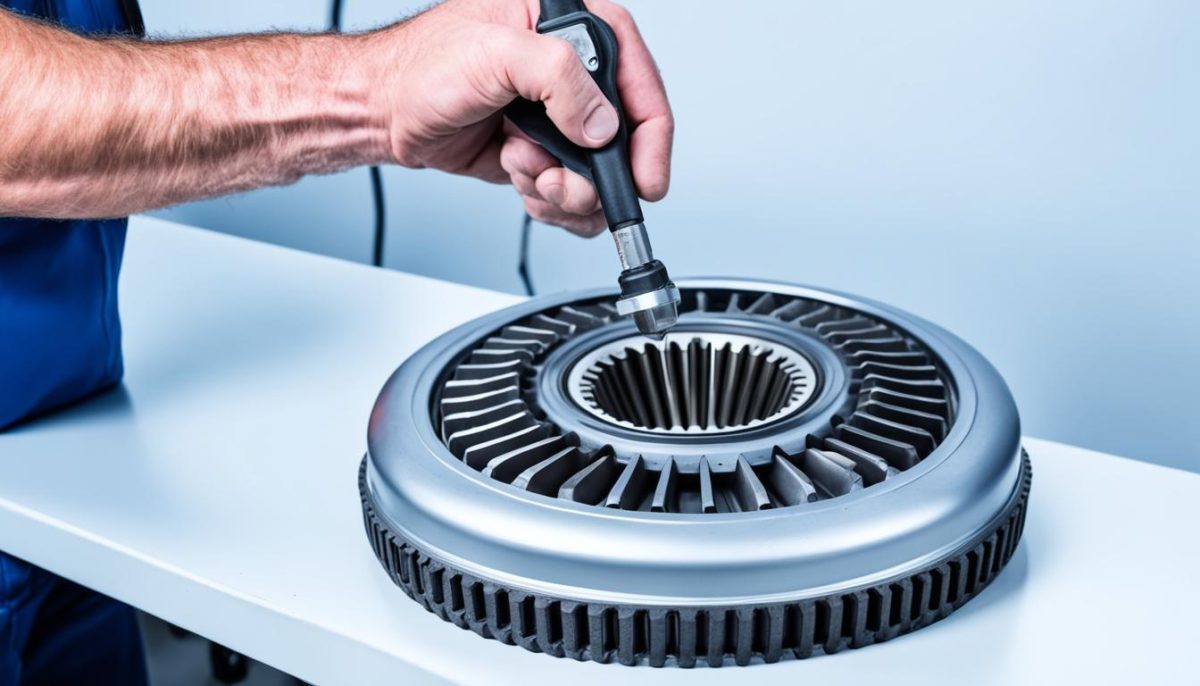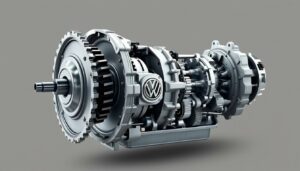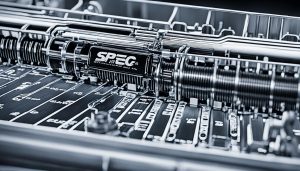Welcome to our comprehensive guide on torque converter repair services. When it comes to your vehicle’s performance and longevity, choosing a reliable and trustworthy repair service is crucial. At [Company Name], we understand the importance of maintaining a well-functioning torque converter, and our team of experienced technicians is here to help.
As a vehicle owner, you may be wondering why torque converter repair is necessary. The torque converter plays a vital role in the operation of automatic transmissions, allowing for smooth and efficient power transfer between the engine and transmission. Over time, wear and tear can lead to issues such as slipping, shuddering, or overheating, affecting the overall performance of your vehicle.
Timely repair of a faulty torque converter is essential to prevent further damage and ensure optimal performance. Ignoring these issues can lead to costly repairs down the line and even compromise the safety of your vehicle.
When it comes to choosing a torque converter repair service provider, it’s essential to consider factors such as experience, expertise, and customer reviews. At [Company Name], we pride ourselves on our industry knowledge and exceptional customer satisfaction. With our state-of-the-art facility and skilled technicians, you can trust us to restore and revitalize your torque converter with precision and efficiency.
Stay tuned for the following sections of our guide, where we will delve deeper into understanding torque converters, recognizing the signs of a faulty converter, and providing insights on selecting the right repair service provider. We are confident that our expertise and commitment to quality will exceed your expectations.
A mechanic hand holding a torque converter and a wrench. The torque converter is being fixed under bright, white light in a clean workspace.
Understanding Torque Converters and Their Role in Vehicle Performance
In this section, we will dive deeper into understanding torque converters and their crucial role in a vehicle’s performance. Torque converters are an integral component of automatic transmissions, responsible for transferring power from the engine to the transmission and ultimately to the wheels.
So, what exactly is a torque converter? It is a fluid coupling device that allows the engine to keep running while the vehicle is stationary. Its primary function is to multiply torque, allowing the engine to deliver sufficient power to the wheels at low speeds.
A torque converter consists of three main components: the impeller, turbine, and stator. The impeller, connected to the engine’s crankshaft, drives the transmission fluid flow. As the fluid moves, it strikes the turbine, connected to the transmission’s input shaft, generating rotational force, which is then transferred to the wheels. The stator redirects the fluid flow, optimizing torque output and overall efficiency.
The torque converter operates through fluid coupling, relying on the transmission fluid’s viscosity and fluid dynamics to transmit power. This unique design allows for smooth gear shifts and seamless power delivery, enhancing driving comfort and performance.
The significance of torque converters becomes evident when considering the challenges faced by automatic transmissions. Unlike manual transmissions, which rely on a clutch to engage and disengage the engine from the transmission, automatic transmissions require a device like the torque converter to facilitate power transfer without stalling the engine.
The ability of torque converters to multiply torque at low speeds plays a crucial role in improving a vehicle’s acceleration and towing capabilities. By allowing the engine to operate in its optimal powerband, torque converters maximize performance while reducing stress on the drivetrain.
Understanding the inner workings of torque converters provides valuable insight into their importance for vehicle performance. By ensuring the proper functionality and condition of your torque converter, you can optimize your vehicle’s power delivery, fuel efficiency, and overall driving experience.
Signs of a Faulty Torque Converter and the Importance of Timely Repair
As a vehicle owner, it is essential to be aware of the signs that indicate a faulty torque converter. Ignoring these signs can result in further damage to your vehicle’s transmission system and lead to expensive repairs down the line. In this section, we will outline the common symptoms that indicate a problem with your torque converter and highlight the importance of addressing them promptly.
Common Signs of a Faulty Torque Converter:
- Transmission Slipping: One of the most noticeable signs of a faulty torque converter is transmission slipping. This occurs when there is a delay in the power transfer from the engine to the wheels, resulting in a loss of acceleration or unexpected shifts in gears.
- Shuddering or Vibrations: If you experience unusual shuddering or vibrations when driving, especially during acceleration or at higher speeds, it could indicate a problem with your torque converter. These vibrations often feel like the vehicle is shaking or jerking.
- Overheating: A faulty torque converter can cause excessive heat buildup in the transmission system. If you notice your engine temperature rising quickly or the transmission fluid overheating, it is crucial to have your torque converter inspected and repaired.
- Strange Noise: A malfunctioning torque converter can produce various unusual noises, such as whining, grinding, or humming sounds. These noises are often more prominent when the vehicle is idling or shifting gears.
It is important to note that these signs can also indicate other transmission issues. Therefore, to accurately diagnose the problem and determine if it is indeed a faulty torque converter, it is recommended to consult with a professional technician who specializes in transmission repairs.
Ignoring the signs of a faulty torque converter can lead to severe consequences, including complete transmission failure. It is crucial to address these issues promptly to prevent further damage and ensure the longevity of your vehicle’s transmission system.
By promptly seeking torque converter repair services when these signs arise, you can avoid extensive damage and costly repairs. Timely repair not only helps restore your vehicle’s performance but also ensures your safety on the road.
In the next section, we will discuss how to choose the right torque converter repair service provider to ensure a reliable and high-quality repair for your vehicle’s torque converter.
Choosing the Right Torque Converter Repair Service Provider
When it comes to repairing your vehicle’s torque converter, it’s essential to choose a service provider that you can trust. With numerous options available, finding the right repair shop can be overwhelming. To help you make an informed decision, consider the following factors.
Experience is key. Look for a torque converter repair service provider with years of experience in the industry. A well-established company with a proven track record is more likely to have the expertise and knowledge needed to effectively diagnose and repair your torque converter.
Customer reviews can offer valuable insights into the quality of service provided. Take the time to read reviews and testimonials from previous customers. Pay attention to feedback about professionalism, reliability, and overall customer satisfaction. A repair shop with positive reviews is a good indicator of their commitment to delivering exceptional service.
Certifications also play a crucial role. Check if the torque converter repair service provider you’re considering has certifications from recognized automotive organizations. These certifications demonstrate that the technicians are qualified and have undergone the necessary training to handle torque converter repairs effectively.




